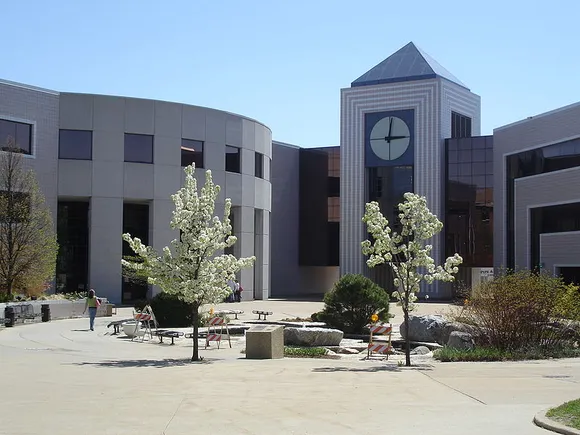Dive Brief:
- Two Michigan institutions — Oakland University and Western Michigan University — could face potential faculty strikes as negotiations over salaries, workloads and other issues drag on.
- A Sept. 1 bargaining session with Oakland University administration ended without a contract, according to the institution’s chapter of the American Association of University Professors. Negotiating teams are meeting Tuesday with a mediator. If no agreement is reached, the bargaining team will call for a work stoppage, union officials told Higher Ed Dive.
- Some 150 miles away, faculty at Western Michigan University are calling for a strike over prolonged compensation and budget negotiations. The talks have gone past the Aug. 30 deadline set by the WMU AAUP, and the union is calling for volunteers to serve on its strike preparation work group.
Dive Insight:
The possible strikes at both Michigan universities come amid growing labor action across professions in the U.S. and as many colleges try to trim costs, revamp budgets and increase their academic productivity.
At Oakland University, the faculty contract — which covers 800 faculty members and has already been extended to create more time for negotiating — is set to expire Tuesday.
The Oakland AAUP chapter said of an August negotiating session that the university “continues to use unrealistically conservative budget projections to excuse their minimal and insufficient salary increases.”
In a webpage devoted to the negotiations, the university says that it “values our faculty members and respects their contributions.”
Administration and union bargainers did reach agreements on many “small” items during the previous bargaining session, according to a “diary” on the negotiations posted by the union.
The “most important” development from the session, in the eyes of the union, was that the university retracted its own effort to write a universal workload policy.
The university had previously tied any concessions on salary increases to the workload policy, which would have created uniform standards across academic departments at Oakland. The union maintained that such a policy would fundamentally alter the system of shared governance and that workloads should be determined by individual departments.
“The faculty was unequivocal in its opposition to this idea and the clear message you sent staved off this violation of the principle of shared governance,” Oakland AAUP said Sunday.
But at the most recent bargaining session, university negotiators wouldn’t consider economic proposals from the union. An Oakland University spokesperson said economic compensation is the only issue left to be agreed on.
With the outcome for Tuesday’s negotiations uncertain, a vote to authorize the strike is currently underway, and closes at 5 p.m. Central Time.
“Based on Friday’s membership meetings, we believe the vote will be overwhelmingly in favor of authorization,” Amy Pollard, executive director of the university’s AAUP chapter, told Higher Ed Dive in an email.
At Western Michigan University, faculty union officials highlighted what they see as disingenuous budget posturing in negotiations over the broader topics of salaries and healthcare.
Faculty are “well aware that, when we are under-resourced — starved of supplies, travel funds, work space, equipment, and more — it effectively reduces our take-home pay and often negatively impacts students,” the union said in a blog post Sunday.
The union also highlighted what it called “erosion and erratic supply of professional travel funds” and a refusal to supply work tools such as laptops and lab supplies in “a reasonable fashion.”
“While this chronic disinvestment in Western’s core mission is unlikely to make the news, it helps explain why so many employees are so frustrated and willing to fight on for as long as necessary,” the union said.
A university spokesperson did not immediately respond to a request for comment Tuesday.
Recent years have seen relative spikes in work stoppages across industries, according to analysis of Bureau of Labor Statistics data by the left-leaning Economic Policy Institute.
The think tank highlighted the University of Michigan as one example. Graduate student workers at the flagship went on a five-month strike in 2023, the longest stoppage that year. Both sides filed charges against the other with the National Labor Relations Board.
Already in this year’s fall semester season, facilities workers at Cornell University have gone on strike after failed negotiations. That strike ended Monday with the ratification of a new contract.
#Michigan #universities #face #potential #faculty #strikes










